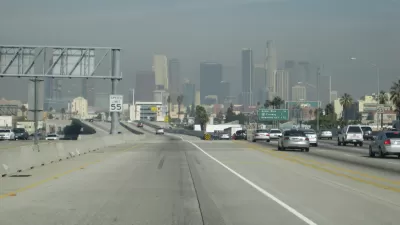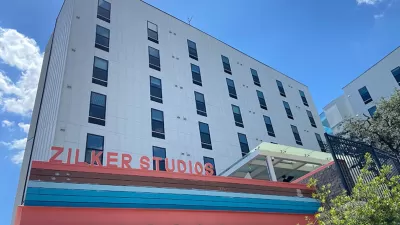Penn IUR Co-Directors Genie Birch and Susan Wachter write about the promise of geospatial technologies in promoting sustainable urbanization.
That the earth's landscape is changing around us is no secret: urban areas are expanding, population densities are increasing, and green spaces are shrinking. In the midst of this transformation, urbanists, scientists, and policy makers are watching and weighing in, hoping that through better understanding of the dynamics of urbanization and sustainability, the earth can adapt, accommodate, and—yes—even thrive as the global population nears an anticipated 9 billion or more in the next three decades.
The good news is that we now have tools to look squarely at changes in land cover and urban form, to see how they might be shifting the global maps describing the natural and manmade features that affect how people live. Some of the most promising tools are geospatial technologies, methods used to visualize, measure, and analyze earth's features. The most well known are GPS (global positioning systems), GIS (geographical information systems), and RS (remote sensing).
FULL STORY: Geospatial Technologies for a Healthier, More Sustainable, and Increasingly Urban Earth

Alabama: Trump Terminates Settlements for Black Communities Harmed By Raw Sewage
Trump deemed the landmark civil rights agreement “illegal DEI and environmental justice policy.”

Planetizen Federal Action Tracker
A weekly monitor of how Trump’s orders and actions are impacting planners and planning in America.

The 120 Year Old Tiny Home Villages That Sheltered San Francisco’s Earthquake Refugees
More than a century ago, San Francisco mobilized to house thousands of residents displaced by the 1906 earthquake. Could their strategy offer a model for the present?

In Both Crashes and Crime, Public Transportation is Far Safer than Driving
Contrary to popular assumptions, public transportation has far lower crash and crime rates than automobile travel. For safer communities, improve and encourage transit travel.

Report: Zoning Reforms Should Complement Nashville’s Ambitious Transit Plan
Without reform, restrictive zoning codes will limit the impact of the city’s planned transit expansion and could exclude some of the residents who depend on transit the most.

Judge Orders Release of Frozen IRA, IIJA Funding
The decision is a victory for environmental groups who charged that freezing funds for critical infrastructure and disaster response programs caused “real and irreparable harm” to communities.
Urban Design for Planners 1: Software Tools
This six-course series explores essential urban design concepts using open source software and equips planners with the tools they need to participate fully in the urban design process.
Planning for Universal Design
Learn the tools for implementing Universal Design in planning regulations.
Clanton & Associates, Inc.
Jessamine County Fiscal Court
Institute for Housing and Urban Development Studies (IHS)
City of Grandview
Harvard GSD Executive Education
Toledo-Lucas County Plan Commissions
Salt Lake City
NYU Wagner Graduate School of Public Service




























